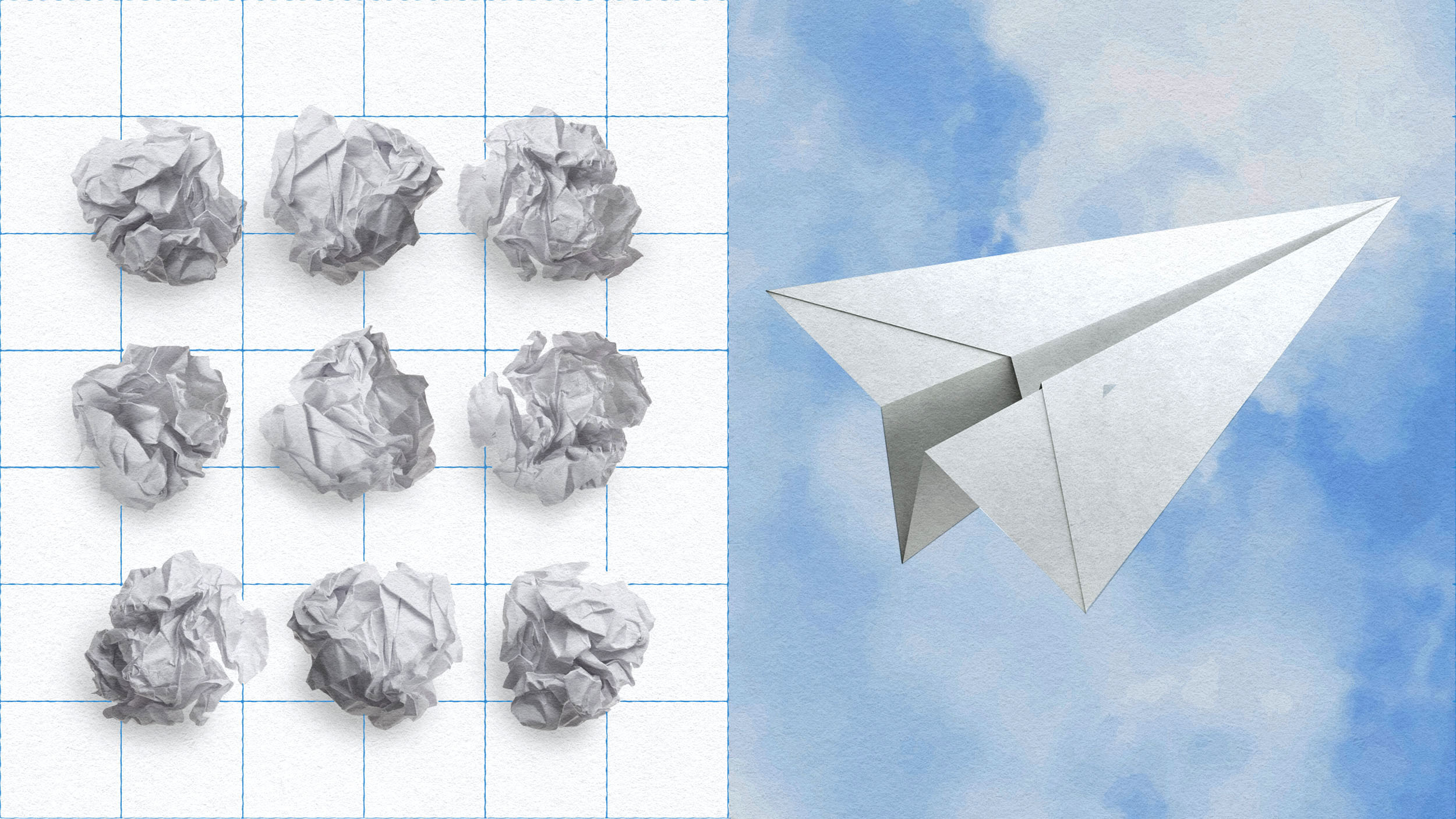Want true success? Be more philosophical about “good” and “bad” failure.

- There is a personality-led cottage industry that champions the benefits of “constructive failure.”
- The philosopher Jonathan Mitchell argues that this “narrative of success” downplays or ignores the very real “existential failure” a lot of people face.
- Here we look at ways to understand and cope with various types of failure.
Failing is cool at the moment. This is an era of reframing. A setback isn’t bad; it’s a learning experience. An obstacle shouldn’t bother you; it’s an opportunity to grow. If you’ve read any self-help article written in the last five years, you will often find, at some point, the idea that “failing is necessary for success.” There’s a cottage industry of celebrities and self-help personalities who lionize the great benefits of having to overcome. All will start with a similar refrain: “We live in an age of perfection,” or “We don’t treat failure with respect.” Perhaps a decade ago, but after several years of bestselling books and viral videos, it’s getting harder to uphold that refrain. It could even be argued the pendulum has shifted the other way; this is an age of failure fetishization.
The real problem, though, is that the issue is too often oversimplified. A child getting a bad grade at school or an athlete who doesn’t get their PB might make them better. Yes, some failure means growth, but as the philosopher Jonathan Mitchell argues, the fetishization of failure often overlooks one key thing: sometimes, failure can break you. So how can you tell the difference between “good” and “bad” failure, especially in our daily lives? And how can we shift the pendulum back to somewhere more balanced?
Make or break?
The reason why this industry operates from such a large cottage, is because there’s a cartload of truth to it. There’s a lot of research out there that shows we come back stronger and better after a setback. Our skills are honed only through the hard and heavy repetition of try-fail, try-fail. Therapists and philosophers, both, have pointed out how the transformational axis points in our lives are often triggered by some “failure” — a failed job, a failed marriage, or any failed life choice. Failure builds resilience and fortitude, but it is also a change in direction.

The problem becomes clearer, though, when you ask the question: who is telling you “failure is good”? Mitchell argues that a lot of our modern understanding of failure is interpreted through an after-the-fact “narrative of success.” A narrative of success is one of hope and optimism. But it’s often written in hindsight, as when a famous author goes on social media to write, “If I hadn’t been rejected 10 times, I’d never have written this bestseller!” The narrative of success is a kind of survivorship bias and sees only the lessons learned or growth to be made. In other words, it’s all about the survivors.
Not all failure is like this. Some failure is what Mitchell calls an “existential failure.” Sometimes when we fall down, there is no heroic getting back up — we’re just lying in the mud, crying and broken. When we experience “existential failure,” there is no narrative of success but a “cluster of strong negative emotions,” which destroys our self-esteem and worth. It gives only hopelessness. Some failures break you.
In her work, The Ethics of Ambiguity, the French philosopher Simone de Beauvoir argued that humans can “transcend” almost everything if they choose. We can overcome, grow, and reframe the many slings and arrows of the world. Almost everything. Even for the existentialist de Beauvoir, there are exceptions. For instance, the black “slave of the eighteenth century [or] the Mohammedan woman enclosed in a harem” are so trapped, demeaned, and beaten back that there is no hope to be had. You cannot transcend or grow when all of your reserves are spent and all light has been extinguished.
Telling the difference
Mitchell’s point, though, is not meant to be downbeat and depressing. It is simply realistic. Not all failure is good, and not all suffering is an “opportunity to grow.” Yes, we should try to establish narratives of success, but we should also accept that sometimes we need to just get through the day. So, how can we tell the difference?
Focus on skills and prevention. In the workplace, the difference between productive and destructive failure hinges on the culture of feedback, which leads, in turn, to increased worker resilience. In 2013, Baker et al. published a paper on the importance of a “feedback-friendly” culture and how to foster it. The team concluded the best way — a way used by the likes of Google — is to “move from a simple task-related feedback practice to a dialogue [… and a…] people focus.” Don’t dwell on what went wrong; focus on why it went wrong. Move away from the actual mistake or failure and look instead at the skills that need to be nurtured to prevent similar missteps in the future.
Take heart from the stats and move on. One of the most stressful and devastating failures in any person’s career is being laid off. Being fired or receiving a substantial pay cut can be the kind of profoundly personal setback that leads to Mitchell’s “existential failure”: a place of anxiety and low self-esteem. One of the catalysts for any mental health crisis is when failure is accompanied by loneliness and isolation. Unemployment feels lonely. We feel like outcasts. Here, statistics can help. The vast majority of people have been fired at least once in their lifetime. What’s more, a 2019 study from Northwestern University showed that career setbacks, especially in early to mid-careers, have positive long-term impacts. So, if you’ve been fired, remember: it happens to most people, and it’s often not an existential failure.
Weigh your risk. The big difference between existential failure and growth failures is often how prepared we are for either. Existential failures are usually huge, life-altering, unexpected, and incredibly badly timed. If a new dad with a new mortgage on a new house loses his job, that’s a bigger hit than a 19-year-old living with his parents losing his. Failure, then, is often about preparation, expectancy, and a “risk appetite.” On Big Think+, the host of the Afford Anything podcast, Paula Pant, talks us through how to identify our levels of risk aversion and to live accordingly. A volatile job in the startup sector might be high-paying, but it lacks the security of a mid-salaried job for a large corporation. If you choose your own level of risk and recognize the potential losses, you’ll be better prepared for failure.





